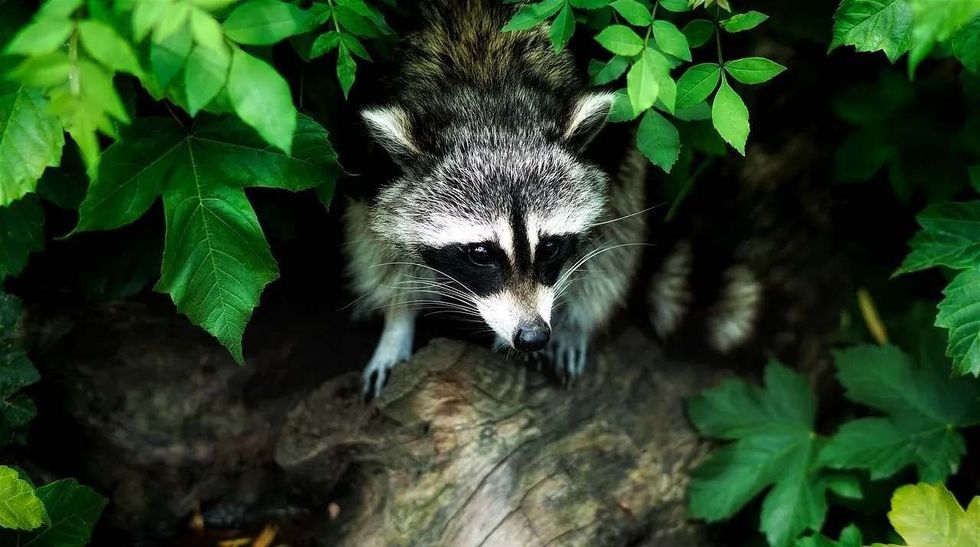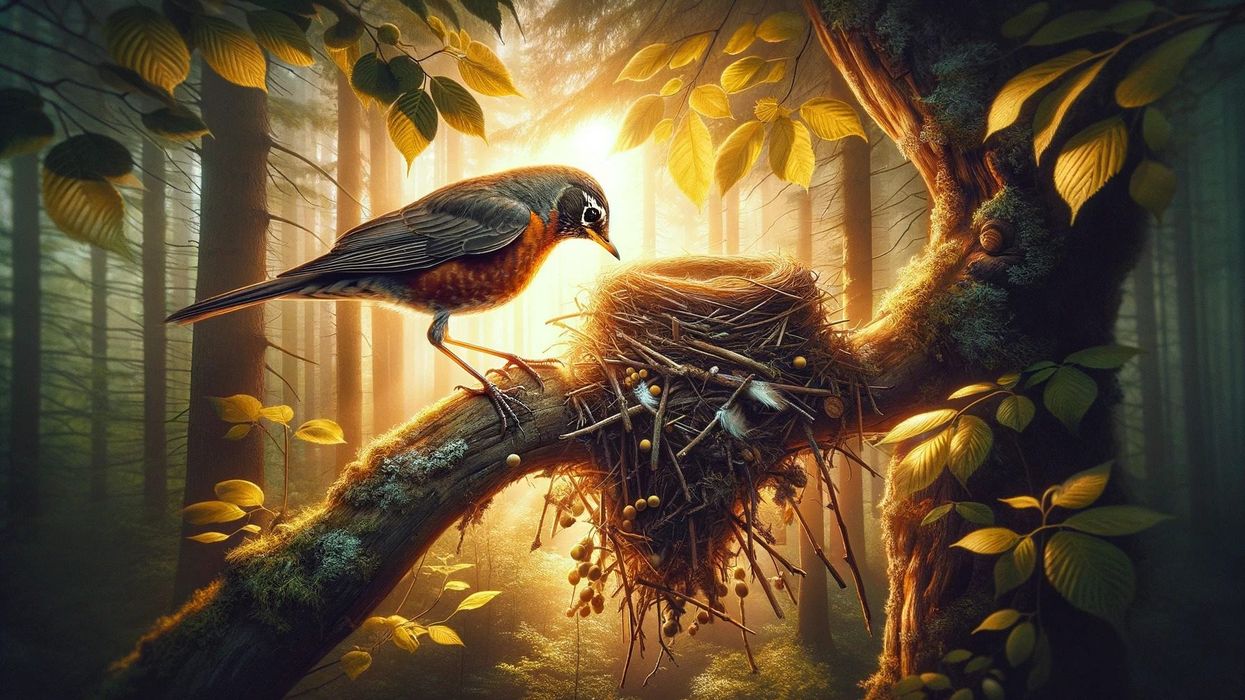A raccoon is a primarily nocturnal animal.
People have encountered raccoons outside of their normal, active hours. Interestingly, daytime raccoons are considered to be rabid raccoons.
These little furry American mammals can be seen outside their dens at varying times for a number of reasons. A daytime raccoon is, therefore, not unusual. Raccoons like to make home shelters near a water source in wooded habitats.
Urban raccoons might find it difficult to find a shelter like that, though. They might make your attic, your yard, or even your porch their homes. Raccoons usually hide in their burrows or holes during daylight hours.
What could be the reason a nocturnal animal is seen walking around in daylight, contrary to its nature? Is it normal for a large raccoon to just jump out of nowhere during the day?
Should you call wildlife control? You should not fight an aggressive raccoon or decide not to call wildlife control if you actually encounter a raccoon. Keep reading to know why you should not and smash the myths circling this wild animal.
Do you think you know everything you need to know about raccoons? If you are interested in this article, why not also read more articles about raccoons, like how long do raccoons live, or what is a group of raccoons called here on Kidadl?
Do raccoons attack humans?
Raccoons are highly defensive, well-equipped fighters with sharp senses and instincts. They are considered to be aggressive. Do raccoons attack human beings with their excellent capabilities? The answer depends on the circumstance.
Normally, a raccoon does not attack a human, unless it is feeling threatened. The chances are that they are more afraid of you than you are of them.
They would probably run away, especially if they are alone and escape is possible. However, if they feel threatened by your presence or feel cornered, you are more likely to get attacked.
To defend themselves or their babies, they will attack you. Sometimes you won't know whether the raccoon is protecting a litter nearby. Just by walking in on the mother, you could get scratched or bitten, and there's a high chance that you could get infected with deadly diseases.
Humans are not their prey, but if you fight them even in self-defense or try to trap them, they have no choice other than to attack. If you are unknowingly blocking the only exit for raccoons, they will definitely see you as a threat.
It is not advisable to trap or handle a raccoon on your own without professional help. A raccoon is a wild animal and therefore unpredictable. If you encounter a raccoon, your first escape plan should be to run away. If there is a raccoon in your house, call for help from wildlife control services.
Avoid harming them in any way, if at all possible. If you get attacked, seek immediate medical help and contact wildlife control experts who can catch the animal before it attacks again.
When do raccoons come out of hiding?
Raccoons are mostly active and come out to forage during the night. They are nocturnal creatures. However, this doesn't mean that they never come out during the day. They are active during dusk and dawn as well and can be seen during the day.
There is a belief that when raccoons are seen during daytime hours, they are either sick or have rabies. However, this is not true.
It is quite normal to see a raccoon outside of its usual active hours. The raccoon could be out looking for more food and taking care of their babies, similar to how human parents sometimes work more office hours.
If the hunt for food is highly competitive at night, they have no choice and are forced to forage beyond their active hours. They might also have got scared and fled their dens or could be moving homes, which they do frequently.
Therefore, if you come across a raccoon while casually going out in the day, it does not necessarily mean that a raccoon has rabies.
Mother raccoons could be looking for their own food after they feed their baby raccoons. Even baby raccoons play, learn and fight in daylight hours. Now, if you do encounter a raccoon, you need to be cautious.
To understand whether the raccoon is sick, you can observe from a distance how alert or responsive it is and whether it is acting in a normal manner. Adult healthy raccoons are always on the watch and full of energy.
They are extremely cautious and possibly afraid of you. If the raccoon you find is lethargic, it could be sick or injured. A rabid raccoon will have difficulty walking or moving in general and might make weird noises.
Do not approach them. If you notice the possible signs of sickness, immediately contact local animal control or wildlife services to help the sick raccoon.
Do raccoons hibernate?
To escape the perils of a harsh winter, many animals hibernate for a part of or for the entire season. In colder regions, raccoons sleep for days or weeks in winter. But, in general, raccoons do not hibernate during cold temperatures.
During the winter season, food sources that they generally prefer become unavailable or scarce. Raccoons sleep in their homes instead of wasting energy as that is more practical.
These usual solitary creatures might den together if the temperature drops to an extreme. Therefore, even though they do not hibernate, it is unlikely that you'll see a raccoon walking around casually.
They can be seen again once their favorite foods like frogs, fish, nuts, birds, eggs, insects, and fruits are available in plenty. They usually eat more food during the fall season to equip themselves for the winter. The extra food they eat helps in building a layer of fat that provides insulation.
They have an accommodating diet and even eat from garbage cans. However, there are certain things they cannot eat, and you shouldn't feed them these under any circumstance. These include chocolate, spices, avocados, chips, cow's milk, onions, guacamole, and coffee. These could lead to diarrhea, anemia, seizures, heart congestion, or liver failure.
Are raccoons infected with rabies?
Contrary to popular belief, a daytime raccoon encounter doesn't always mean that the raccoon has rabies. Raccoons are primarily nocturnal animals. However, they are not strictly nocturnal. You can find a perfectly healthy raccoon, as well as rabid raccoons, during the day.
Not all raccoons are infected with rabies. But still, they are indeed a common carrier of the deadly disease.
Rabies can lead to brain inflammation and can kill human beings. It could take a while, until it becomes dangerous, for the symptoms of rabies to show up. Raccoons could be infected for a few days to a few months before starting to show symptoms.
If you come across a raccoon, make sure that it does not scratch or bite your skin. If you are attacked by a raccoon, it is wise to get yourself checked as soon as possible.
Acting strangely is a common symptom of rabies. The not-so-normal behavior could include disorientation, lethargy, lack of awareness, weird noises, indifference to human presence, paralyzed legs, and foaming from the mouth. If this is the case with the raccoon you find, call for help from a wild animals rescue or the local animal control.
Raccoons are also carriers and transmitters of roundworms, giardiasis, Weil's disease, and distemper. Avoid provoking a raccoon and, if you get attacked, seek immediate medical help.
Here at Kidadl, we have carefully created lots of interesting family-friendly facts for everyone to enjoy! If you liked our suggestions for Do raccoons come out during the day? Fun facts about the food burglars, then why not take a look at do raccoons attack humans, or do raccoons have opposable thumbs?








